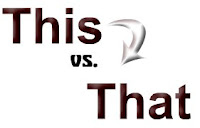
 Past is a noun (meaning "a previous time"), an adjective (meaning "ago"), and a preposition (meaning "beyond").
Past is a noun (meaning "a previous time"), an adjective (meaning "ago"), and a preposition (meaning "beyond").Passed is both the past and past participle form of the verb pass.
Past
The word past locates something in time, and sometimes in space. It can be used as an adjective, adverb, preposition or noun.
Such as the examples below:
Adjective: This year’s income tax return always covers income from the past year.
Adverb: Sonia felt nostalgic as the floats moved smoothly past.
Preposition: Meet me in the field by the big rock under the oak tree at quarter past two, and say the password to identify yourself.
Noun: The muralist said that the past was a constant source of inspiration to her.
Passed
Passed is the past participle of the verb “to pass”. It can be an intransitive verb (one which doesn’t require an object) or a transitive verb (one which requires both a subject and one or more objects).
“To pass” means “To proceed, move forward, depart; to cause to do this.” This can refer to movement forwards in time, in space, or in life (such as “to pass an examination”).
For example:
- “The weeks passed quickly.” (Intransitive: subject “the weeks” and no object).
- “I passed all my exams!” (Transitive: subject “I” and object “my exams”.)
- “He passed the ball well during the match earlier.” (Transitive: subject “He” and object “the ball”.)
When do “past” and “passed” get confused?
Often, writers muddle the words past and passed in sentences such as:- “The heroes passed a village on their way towards the mountains.”
- “The heroes past a village on their way towards the mountains.”
- “The heroes pass a village on their way towards the mountains.”
- or “The heroes are passing a village on their way towards the mountains.”
- “The heroes walked past a village on their way towards the mountains.”
Resource: dailywritingtips.com, elearnenglishlanguage.com,
Today's Grammar Blooper:
Can you spot the error?




No comments:
Post a Comment
Hey! Thanks for leaving your comment!